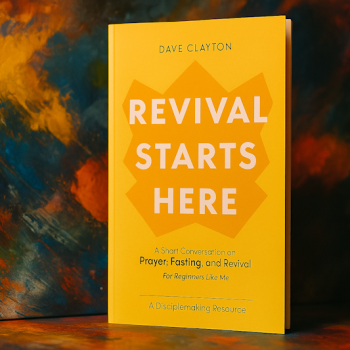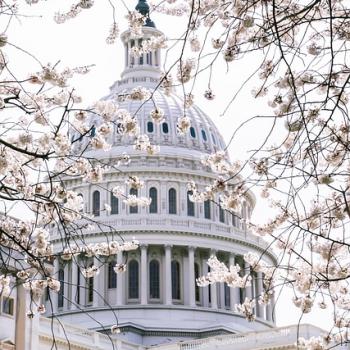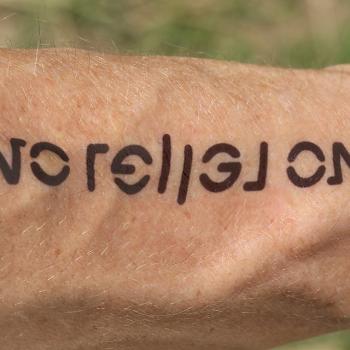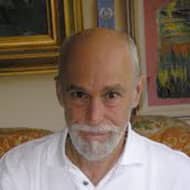Reading this, I wonder: do I still have a top to my head?
Words as Stepping Stones
Readers may not be familiar with ancient yogic teachings of primal energy (kundalini), pictured as a serpent or goddess, coiled sleeping at the base of the spine, waiting to be awakened. No matter. The power of the symbol communicates. Such poetic is, in and of itself, initiatory; a guardian of thresholds, upholding mysteries as it reveals them.
As texts for spoken word, his poems likewise kindle higher consciousness. Aloud, they awaken awareness—words become stepping stones. He writes, "The words offer handhold after handhold as I climb/ Grace in every breath," and "My prayers are in the silence/ between breaths." In a breath-based culture, we can become aware how each moment holds a range of texture and nuance (image, idea, and sound), taking us beyond the fixation of the skin-encapsulated ego and the logjam of discursive thought, re-minding us of our true home, our Original nature.
Through such intelligent alertness - mindfulness—we access our kinship with the universe. This awareness is immeasurable, unborn, and never dies. Communication within this dimension can occur through ". . . the emotional Braille in each other's eyes/ like watching the road ahead/ wind through the mountains . . ."
"One Soul, We All Share It"
In a prose introduction to the final section, Levine shares with us a credo, inviting us into the solitude in which his poetry occurs:
A boundaryless aloneness, created perhaps when the One is cleaved into the many (or the Big Bang scatters our parts) leaves a strange and reminiscent aftertaste, the homesickness for our original Oneness. It reaches from superficial thought down to the substratum of the psyche. It knows us better than we know ourselves.
This is quite a different ars poetica than the "First thought, best thought," that Allen Ginsberg espoused (via his teacher Chogyam Trungpa). It is, rather, the intuition, mentioned earlier, wherein we can confront such vital questions as "Who am I?" and "How can I deal with my pain?" It's precisely here we can awaken to our inner teacher. To that aim, Stephen Levine's exemplary poetry inspires us to trust our own vision, hold it, make it whole.
To put a sharper point on that, this trust in intuitive vision isn't solitary, but has been honed by a 40-year-long road engaged with the brokenhearted and the dying. Speaking about this during one of his public readings of Breaking the Drought, he says:
There is no time in which we have a higher opportunity of wisdom and freedom than in aging. We have perspective, a time to see things we have loved fallen away. We can protect nothing from death and impermanence. [It's] a place of surrender in which surrender is not defeat.
We don't even know we can do in the face of the Beloved. You don't talk in the face of the beloved, who hears you like a dog hears you. The beloved space inside you is so big it doesn't stop at your edges, and it permeates everyone—one soul, we all share it—the universal qualities beyond mine and thine, opening to 10,000 other beings in same state. We find a place where there's peace. We find a place where we are already out of the pain (even if we haven't cured it). My pain and your pain separate us. Your love and my love connect us.
Poetry, Under the Radar
No "rugged individualist," Levine acknowledges his debt to forebears (Rumi and Basho, Rexroth and Machado). Yet he's a trailblazer on the path where Contemplative Art (poetry, music, dance) and the Art of Contemplation (mindfulness, yoga, prayer) are as one. We owe the publisher great credit for the book's generous helping of eighty-one poems. (Today's standard format for poetry is 40 to 60 pages.)
Yet we must also acknowledge that though his books of prose have found over a million readers, this newest book, a return to poetry, flies under the radar. It's interesting, in passing, to note three reasons why. One is the still-marginal place of poetry in American culture. True, we've sparked a now-global revival of spoken arts in the form of hip-hop and rap. But for book publishers, the "poetry marketplace" (a kind of oxymoron, since poetry operates largely outside the cash nexus), is largely fueled by writing programs in academia. True, Coleman Barks' renditions of medieval Sufi poet Rumi captivated a national audience, for a spell. But America's own living, devotional, mystic poets find a much smaller audience, and slip through the cracks of critical discourse; examples that come to mind include Jim Cohn, Patricia Donnegan, Rick Fields, Jonathan Greene, Susan Griffin, Latif Harris, Dan Leighton, Russell Leong, John Martone, giovanni singleton, Will Staple, Robert Sund, and Dorothy Walters.





